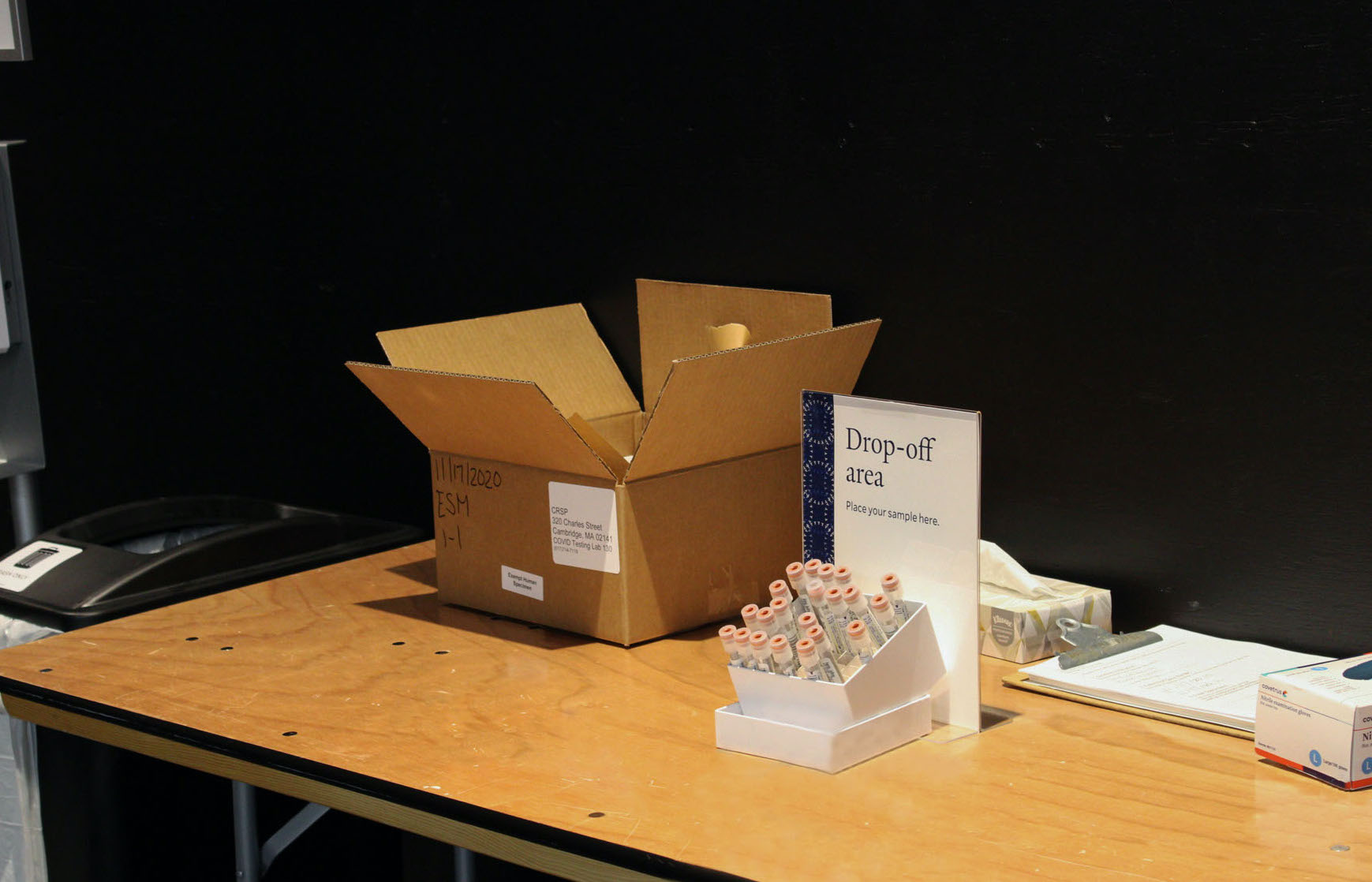
Yasmine Halmane, Contributing Photographer
In an email sent to the Yale community on Tuesday, Yale Health Chief Quality Officer Madeline Wilson announced that there will now be three main results for COVID-19 tests administered through Yale Health: positive, negative and “inconclusive.”
The announcement follows recent developments in testing at the Broad Institute in Massachusetts, Yale’s primary COVID-19 testing partner, and comes as the world faces the imminent threat of COVID-19 variants. The new inconclusive result type — which neither confirms nor denies the presence of the coronavirus in the sample — is meant to be followed up with another test to confirm whether or not the person has an active infection.
“Late last month, the Broad testing center upgraded our high-scale testing to double our capacity and increase the robustness of our assay,” David Cameron, director of communications and media relations at the Broad Institute, wrote in an email to the News. “After two weeks’ worth of data from the upgrade, working with the MA Department of Public Health, we adjusted the interpretation thresholds that we use to call a test ‘positive.'”
Prior to this change, alerts that could have appeared on someone’s MyChart account included “test not performed” — for samples that “could not be processed for technical reasons, most often because too much mucus was on the swab” — and “invalid” for samples where no genetic material was detected, often due to improper swabbing.
Moving forward, those who receive an inconclusive result will be treated as if they were positive for COVID-19 until a negative result negates that possibility. Students who test inconclusive will be contacted by Yale’s testing team so that they can temporarily relocate to isolation housing at Bingham Hall on Old Campus while they wait for follow-up test results. Faculty and staff who receive an inconclusive result will be required to self-isolate at home until their follow-up results are available.
“The Broad Institute made the decision to change their test to look for 2 genetic locations or targets on the virus instead of just one,” Wilson wrote in an email to the News. “The primary motivation for this change was to provide some protection for their assay in the event that a variant or mutation affected their prior single target.”
Viral targets in COVID-19 tests typically correspond to genes that have been identified within the SARS-CoV-2 genome. If a test only has a single target, as used to be the case for the Broad Institute’s test, a potential mutation in the virus — such as the ones that have been observed in the U.K. or South African variants — could result in the virus evading the testing mechanism, leading to an inability to detect the its presence.
Wilson explained that Broad has added an additional target so that, if a coronavirus variant has a mutation that can trigger a positive in only one of the two target locations, then the test would yield an inconclusive result.
“Having multiple targets has added confidence in a diagnostic test, particularly when the viral load is very low,” Pei Hui, clinical director of Yale’s Molecular Diagnostic Laboratories, told the News.
Hui explained that for samples that are obtained either at very early stages of infection, during late recovery phases or under low-level contamination, some of the viral targets in the COVID-19 test will not fulfil the threshold necessary for a positive readout. In those cases, an inconclusive result is issued because the test cannot confidently determine whether the sample was positive or negative for the coronavirus.
According to Hui, having multiple gene targets increases the confidence of diagnostic tests, especially when the viral load is extremely low. This could also allow for labs to identify coronavirus variants, which might be detected when any one of the targets that are normally seen in COVID-19 samples are absent in the viral sample.
“Absence of one of the … targets may provide a clue for a dangerous variant,” Hui said. “This was the reason our Pathology Lab was able to help identify the first two cases of the British variant recently in Connecticut.”
However, even though the analysis of these gene targets could lend itself to variant identification, Wilson stressed that even those who receive an inconclusive result should not interpret it as an assertion that they are infected with a coronavirus variant.
Instead, the result should be read as an indication that the viral load in the sample collected was not sufficient for a definitive conclusion about the patient’s infection status. For that reason, Yale Health has decided to ask those who receive an inconclusive result to self-isolate until a follow up test can be performed, Wilson said.
“The vast majority of inconclusive results are not due to variants but due to very early or very late infection, with the amount of virus in the system being so tiny that only one of the targets tests positive,” Wilson wrote. “From a public health perspective, the inconclusive result type is an indicator that the test should be repeated so that we don’t miss very early cases.”
In her email to the Yale community, Wilson mentioned that it is possible — but unlikely — for an inconclusive result through Yale Health to point toward infection with a variant. Still, the lab will be monitoring for such samples.
The Broad Institute is located in Cambridge, Massachusetts.
Maria Fernanda Pacheco | maria.pacheco@yale.edu







